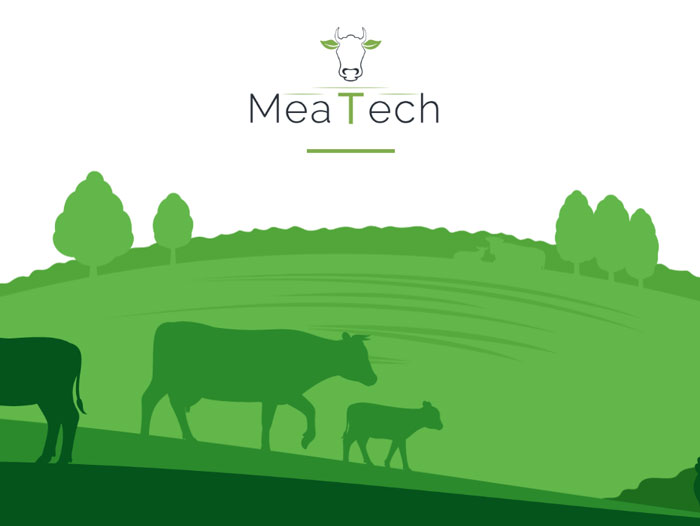Meat-Tech Announces Further Advancement of 3D Printing Technology For Food Products by Bioprinting Cultured Beef Fat Structure
December 15, 2020 | 2 min to read

NESS ZIONA, Israel — Meat-Tech 3D Ltd. (TASE: MEAT) announced today that it has succeeded for the first time in printing a cultured beef fat structure composed of bovine fat cells and bio ink, which were grown and developed from stem cells in the Company’s laboratories. The printing of beef fat and the bio ink created an edible structure that reached a height of 10 mm. This represents a step forward for Meat-Tech’s technology, following the Company’s previous milestone of 3D printing a uniform, thin tissue of meat derived from stem cells.
Meat-Tech is an international company developing technologies to produce cultured meat products. The Company is developing technologies for the next generation of cultured meat food products by leveraging 3D digital printing technology.
This achievement of this milestone represents another advancement towards the development of high-throughput 3D tissue printing technology for clean meat tissue. Ultimately, Meat-Tech believes such 3D bioprinting will include additional components, such as muscle cells. The real meat tissue based upon the cell growth, cell differentiation and bio printing technologies that Meat-Tech is developing is designed to leverage cellular agriculture while avoiding the need to raise and slaughter or otherwise harm animals.
As part of the Company’s program to develop an industrial process for growing and 3D bioprinting meat tissue without slaughtering animals, the company has developed a number of printable materials, including an edible bio ink that helps to create an accurate, digitally-printed structure by supporting 3D printed cells.
About Meat-Tech:
Meat-Tech is developing a novel bio printing process designed to create tissue from edible raw meat components. Meat-Tech is developing methods, processes and machines for growing, producing, and 3D-printing real meat. We believe the Company is the first in the world to 3D-print edible bio-inks, resulting in living tissue made up of a number of different bovine cell types. The Company has technology, knowledge and experience in the application of tissue engineering practices for the production of fat and muscle for food consumption as well as capabilities for 3D-bioprinting a combination of living cells, including the use of growth factors and other biological materials to produce cultured meat that mimics the characteristics of natural tissue.
The Company is using advanced technologies to conduct cell proliferation, targeting production of specific food products. Meat-Tech aims to develop an industrial process aimed at providing commercially-scaled production volumes.
